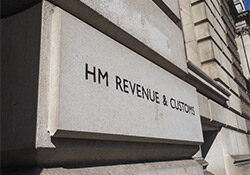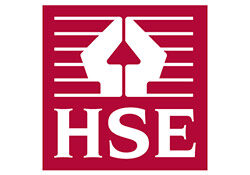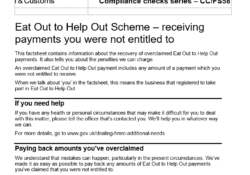
BUSINESS NEWS
Welcome to our round up of the latest business and Covid-19 news for our clients. Please contact us if you want to talk about how these updates affect your business. We are here to support you through these tough times.
A cautious release from the lockdown
Yesterday, the Prime Minister Boris Johnson, outlined the government’s road map to release England from lockdown. Rules in England will be lifted in five-week stages and with four conditions that must be met at each stage. These are that the vaccination programme continues successfully, hospital admissions and deaths continue to fall, pressure on the NHS is manageable and there is no major impact by virus variants.

Stage one – On the 8 March, schools and colleges will reopen and two people allowed to meet outdoors. Care home residents will be allowed one regular named visitor and the stay-at-home order remains in place.
From 29 March, outdoor gatherings of either six people or two households will be allowed. Outdoor sports, including golf and tennis can resume. The stay-at-home order remains in place and people will be encouraged to stay local wherever they can. The work from home policy wherever possible will apply and there will still be no overseas travel.
Stage two – from 12 April at the earliest, non-essential retail, personal care, gyms, swimming pools and outdoor areas in hospitality venues (such as beer gardens) are set to reopen with households or the rule of 6. Libraries, museums, zoos and theme parks, self-contained accommodation and campsites can also reopen. Funerals will continue to have a maximum of 30 people and weddings restricted to 15. These will be subject to the four conditions outlined above.
Stage three – from 17 May at the earliest for outdoors, most social contact rules will be lifted up to a limit of 30 people. Mixing indoors will be allowed for two households with the 6-person rule for indoor hospitality and elsewhere continues. Cinemas, soft play centres, rest of accommodation sector, hotels and indoor exercise classes return. Performances and sporting events can resume – larger performances with venues 1,000 plus or half full will be allowed indoors and outdoors 4,000 capacity or half full (whichever lowest). International travel will be subject to review.
In the largest outdoor seated venues such as football stadiums, up to 10,000 people will be allowed to attend (or 1/4 full whichever is lowest). Up to 30 people can attend weddings, receptions and funerals. These will be subject to the four conditions outlined above.
Stage four – the legal limits on people’s social contact are set to be removed by 21 June with the remaining sectors of the economy reopened.
The Prime Minister stated that the dates in his four-stage plan were not set in stone and were the earliest possible point at which the restrictions could be lifted.
This long-awaited plan foresees a significant return to normality in the space of four months and we can hope that we all have a much better summer this year.
For the full plan details see:
Pre 6 April tax planning
With 6 weeks to go until the end of the Tax Year, it is time to make the most of your tax allowances this year. The first step to making the most of your tax allowances can mean looking closely at your pension. UK residents under 75 can add money to a pension and receive tax relief on it. You’ll automatically get basic rate tax relief (currently 20%) paid into your pension by the government.

If you pay tax at a higher rate you could get up to a further 25%, but you’ll need to claim it by declaring any pension contributions you’ve made on your tax return.
To make the most of your pension, you need to know the Pension allowances that you are entitled to. If you have not used them to the full, there may still be time to top them up – and start planning on how you will use them next tax year.
The annual allowance is the maximum you can invest in your pension each year that would be eligible for tax relief. It is currently £40,000, or your entire income, whichever is the smaller and there are lifetime allowances to consider.
If you run a limited company then there are some actions you could consider such as dividend and salary planning, purchasing capital items to maximise capital allowances, research and development tax credits and a range of other matters.
Please talk to us about pre-tax year end planning for your business and for specific pension planning advice, we can refer you to an independent financial adviser.
The economy
Last week we heard that the UK borrowed its highest ever January amount since 1993. It was the first time in 10 years that more has been borrowed in January than collected through tax and other income, and this emphasises the scale of Government borrowing to support businesses and protect jobs through schemes such as the Furlough and self-employment programmes. The UK’s overall debt is now 97.6% of gross domestic product which is its highest in 60 years.

We believe there will be a bounce back and the successful vaccination programme will allow us to get to some form of normality later this year, in the meantime, we need to be patient.
The final report of the government’s fundamental review of business rates will now be published in the Autumn, the Business Rates Review was announced by the Chancellor at last year’s Budget and a call for evidence closed late last year. A call for evidence was published in July 2020 to seek stakeholders’ views on key issues including reforming the rates multiplier and looking at alternative ways of taxing non-residential property. An interim report – which will include a summary of consultation responses – will be published on 23 March.
Due to the ongoing and wide-ranging impacts of the pandemic and economic uncertainty, the government said the review’s final report would be released later in the year when there is more clarity on the long-term state of the economy and the public finances.
BREXIT NEWS
Last week we saw former Brexit negotiator, Lord Frost, join the cabinet to take charge of forging a new relationship with the EU. The appointment indicates that negotiations between the UK and the EU will be ongoing for many years ahead. Lord Frost recently commentated on post Brexit matters: “I think it has been more than bumpy in the last six weeks, I think it has been problematic”.
There are many unresolved issues, notably the UK financial services sector not having any access to EU customers without local authorisation from individual EU countries.

The Financial Conduct Authority has updated its guidance for firms after the transition period and how the end of access to EU markets affects financial services firms.
See:
The fact that Northern Ireland remains in the single market continues to bring up new issues almost on a daily basis. For example, Northern Ireland plant and tree buyers are cancelling orders because of the additional checks and administration on the movement of these goods from Great Britain.
The Northern Ireland protocol (NIP) discussions are ongoing, and all sides have reiterated their full commitment to the NIP. The UK government has asked the EU for a long extension of “grace periods” where not all aspects of the protocol, relating to checks on goods, have been implemented. We will keep you updated if anything results from these talks.
Fishing has also remained a difficult issue after the EU banned shellfish imports from the UK, and France clashed with the Jersey government over access to waters. The UK government has said it is considering its options.

The uncertainty surrounding taxation and social security contributions for touring artists in Europe, and the administrative burden of applying for and the granting of visas, means artists and musicians are not committing to touring the continent at this present time.
The performers’ equity union has sent an open letter to the government about their concerns and last week the government said it hopes to open negotiations with individual EU countries to help British artists tour.
As always we will keep you up to date on new announcements and please do talk to us about any Brexit related matters. We are here to support your business.
COVID-19 GOVERNMENT SUPPORT NEWS
Below is our weekly roundup of changes to government support information generally and for businesses, employers and the self-employed.
Prime Minister sets out roadmap to ease lockdown restrictions in England
PM Boris Johnson has announced the government’s roadmap to cautiously ease lockdown restrictions in England:
• Government publishes four-step roadmap to ease restrictions across England and provide a route back to a more
normal way of life
• Each step to be assessed against four tests before restrictions ease, starting with the return of schools on
8 March
• PM states that the decision on each stage will be based on data not dates, and government will move
cautiously to keep infection rates under control
Health and safety spot checks and inspections during coronavirus (COVID-19)
We have heard from a number of clients that the Health and Safety Executive (HSE) is carrying out spot checks and inspections on all types of businesses in all areas to ensure they are COVID-secure.

HSE are making calls to businesses so they can give advice on how to manage the risks and protect workers, customers and visitors. They are also working closely with local authorities, assisting them in the sectors they regulate such as hospitality and retail.
HSE state that Inspectors will make COVID-secure checks as part of their normal role in visiting workplaces during the pandemic. To ensure they reach as many workplaces as possible nationally and support the core work of inspectors, they are working with trained and approved partners to deliver the spot check calls and visits.
Officers that visit premises will be carrying identification from their business and a letter of authorisation from HSE. If you wish to verify an officer that calls or visits your organisation, please call 0300 790 6896.
See:
The impact on the UK travel and tourism industry
Last week the office for national statistics (ONS) released analysis of industries related to travel and tourism in the UK that have been affected by the coronavirus (COVID-19) pandemic, using data on business performance and the labour market. The main points from their analysis are:
• Monthly air passenger arrivals to the UK fell from 6,804,900 in February 2020 to 112,300 in April 2020, a
fall of 98.3%.
• Greater London saw the largest fall in room occupancy of any English region from 2019 to 2020, with just 20%
of rooms occupied in July 2020 compared with 90% in the same month in 2019.
• Accommodation and travel agency businesses saw the sharpest decline in turnover during the first national
lockdown, falling to 9.3% of their February levels in May 2020.
• The proportion of businesses in travel and tourism industries trading peaked at 85% in October 2020, before
declining in response to increasing restrictions in November.
• In the three months to June 2020, employment in accommodation for visitors fell by 21.5% compared with the
same three months of 2019.
• In travel and tourism industries overall, the number of people aged 16 to 24 years saw the largest fall in
employment of any age group between Quarter 3 (July to Sept) 2019 and Quarter 3, 2020.
As we are still in lockdown the results are not surprising. We hope that this sector bounces back in the summer once the vaccination programme and other measures stabilise the virus.
In the meantime the best use of anyone’s time right now is planning for the “bounce back” recovery.

Business planning for recovery
We cannot predict the date of a return to normality, but there are some practical steps you can take to minimise potential disruption to your business and maximise opportunities for recovery:
1. Review your Budgets and set realistic and achievable targets for the remainder of 2021.
2. Review and flow chart the main processes in your business (e.g. Sales processing, order fulfilment, shipping
etc.) and challenge the need for each step.
3. Encourage team members to suggest ways to streamline and simplify processes (e.g. sit down and brainstorm
about efficiencies and cost reduction).
4. Put extra effort into making sure your relationships with your regular and long-standing customers are
solid.
5. Review your list of products and services and eliminate those that are unprofitable or not core
products/services.
6. Use the current lockdown as an opportunity to reflect on the exceptional challenges you have faced as a
result of Covid-19 over the last 12 months. What were your most significant accomplishments? Have you
encountered any setbacks or disappointments? Consider what you have learned from your experiences to improve
your prospects for later on in 2021.
7. Your final task is to set yourself and the business some specific goals for recovery. Make sure to keep them
visible and share them.
Please talk to us about cash flow planning for the next six months, we can help with a template so you can do this yourself or work together to produce estimates for a variety of scenarios.
Self- Assessment payments including Class 2 National Insurance contributions
Information about payment of Class 2 National insurance contributions through a Time to Pay arrangement, has been added and the Pay in Instalments section has been updated in the guidance by HMRC on how to pay self-assessment.
As one of the Governments coronavirus (COVID 19) supporting measures, Self-Assessment taxpayers were given the option of deferring payment of their July 2020 Payment on Account until 31 January 2021.
If you deferred this payment, you may have had these 3 payments to make on 31 January 2021:
• your deferred July 2020 payment on account (if it remains unpaid)
• any 2019 to 2020 balancing charge
• your first 2020 to 2021 payment on account
If you had difficulty in making all 3 payments at once, you may have chosen to set up a Time to Pay instalment arrangement with HMRC.
If you are Self-Employed and Pay Class 2 National Insurance contributions, you will usually pay them as part of your annual balancing payment.
If you are paying the 3 payments mentioned above through a Time to Pay arrangement, your deferred July payment on account will be cleared first, having the oldest due date. This is to minimise the interest you will be charged.
This could result in your 2019 to 2020 Class 2 National Insurance contributions being paid after their due date of 31 January 2021. Where Class 2 National Insurance contributions are paid after that date it can have a detrimental effect on certain contributory benefits claimed.
If this affects you, contact us and we will notify HMRC on your behalf. HMRC may be able to allocate monies you have already paid for your 2019 to 2020 Self-Assessment liabilities against the Class 2 National Insurance contributions that you owe. You may incur a small amount of interest if they do this, but your contributory benefit claim should be protected.
Pay in instalments
You can pay your tax by instalments if you were unable to pay in full by 31 January 2021. If you have not filed your 2019 to 2020 Self-Assessment return, you will need to file it as soon as possible. HMRC will then know what payments you owe, and you will be able to set up a Time to Pay instalment arrangement with them.
If you owe up to £30,000 you can do this online without having to contact HMRC directly.
When you have filed your return you will need to wait at least 72 hours before you can set up your Time to Pay arrangement online.
Late payment penalties are charged when tax remains unpaid for 30 days, 6 months and 12 months after the payment due dates. You can avoid the penalties if you enter into a Time to Pay arrangement before they become due and you pay all the tax owing under that arrangement on time.
For Self-Assessment payments that were due on 31 January 2021, you will avoid the first late payment penalty if you set up a Time to Pay arrangement by 2 March 2021. The 6 month and 12 month penalties can be avoided if you pay all the tax owing under that arrangement on time
Interest is payable on Time to Pay instalments so you should check the interest rates for late and early payments.
If you are unable to pay your self-assessment tax please talk to us about your options and we will endeavour to assist with informing and talking to HMRC.
Self-Employment Income Support Scheme (SEISS)
Claims for the third SEISS grant have now closed. The last date for making a claim for the third grant was 29 January 2021.
Details about the fourth grant will be announced on 3 March 2021. We will keep you up to date on any new developments.
Coronavirus Job Retention Scheme claims (CJRS)
You can now submit your claims for periods in February. These must be made by Monday 15 March.
You can claim before, during or after you process your payroll. If you can, it’s best to make a claim once you are sure of the exact number of hours your employees will work so you don’t have to amend your claim later. Talk to us about how we can submit and estimate your February claim.
The guidance has been updated to show we can, as your agent, request CJRS claim details are not published. If publishing your claim details could leave individuals at risk of violence or intimidation, then you can request that HMRC does not publish details about the scheme claim, if you can show evidence that it would result in serious risk of violence or intimidation to:
• you or anyone living with you
• an individual associated with your business, or anyone living with them
Examples of individuals associated with your business include:
• an employee
• a director, officer or employee of that company
• a partner, officer or employee of that partnership
• a member or employee of a limited liability partnership
• a settlor, trustee or beneficiary of a trust
HMRC will not publish any of your details until a decision has been made and you have been informed.
Please contact us if you would like us to submit a request on your behalf.
Eat Out to Help Out Scheme: receiving payments you were not entitled to
HMRC has produced a factsheet containing information about the recovery of overclaimed Eat Out to Help Out payments. It also tells you about the penalties HMRC can charge.

An overclaimed Eat Out to Help Out payment includes any amount of a payment which a business was not entitled to receive.
When HMRC talk about ‘you’ in their factsheet, this means the business that registered to take part in Eat Out to Help Out.
If you need assistance or have made an error in a claim please talk to us. The factsheet can be found here:
HGV or van drivers – get a coronavirus test
You must take a coronavirus (COVID-19) test before you leave the UK for some countries – check which countries require them and how to get a free test.
You must test negative for coronavirus before you travel from the UK to Denmark, France, Germany or the Netherlands.
Check FCDO travel advice for any country you’re planning to enter here: https://www.gov.uk/foreign-travel-advice
You must take the test before you leave the UK. You’ll need to show your certificate of proof of a negative test at the UK and EU border, as well as to the carrier.
You must do this if you’re:
• a heavy goods vehicle (HGV) driver or HGV crew
• a van or other light goods vehicle (LGV) driver
It applies to both UK and non-UK drivers. If you test negative, you will get a certificate of proof. You’ll need to show this before you can leave the UK. You can get a free coronavirus test if you’re a professional coach driver who is driving abroad for work. You can either get:
• a private test from your company (if it has bought them from an authorised test provider)
• a free coronavirus test at most haulier advice sites
To find a haulier advice site see:
Private providers of coronavirus testing – The lists of and information about approved suppliers of private testing kits for coronavirus (COVID-19) has been recently updated.
Guidance for landlords and tenants in the private and social rented sectors to explain the possession action process in the county courts in England and Wales.
The guidance has been updated to reflect new legislation extending the prevention on enforcement of evictions in England during the national lockdown and launch of the mediation pilot.
For more information , Book a Free Consultation
Need Accountancy Support?
For information on bespoke training, or if you have any other questions for Makesworth Accountant, please fill in your details below




















 150
150